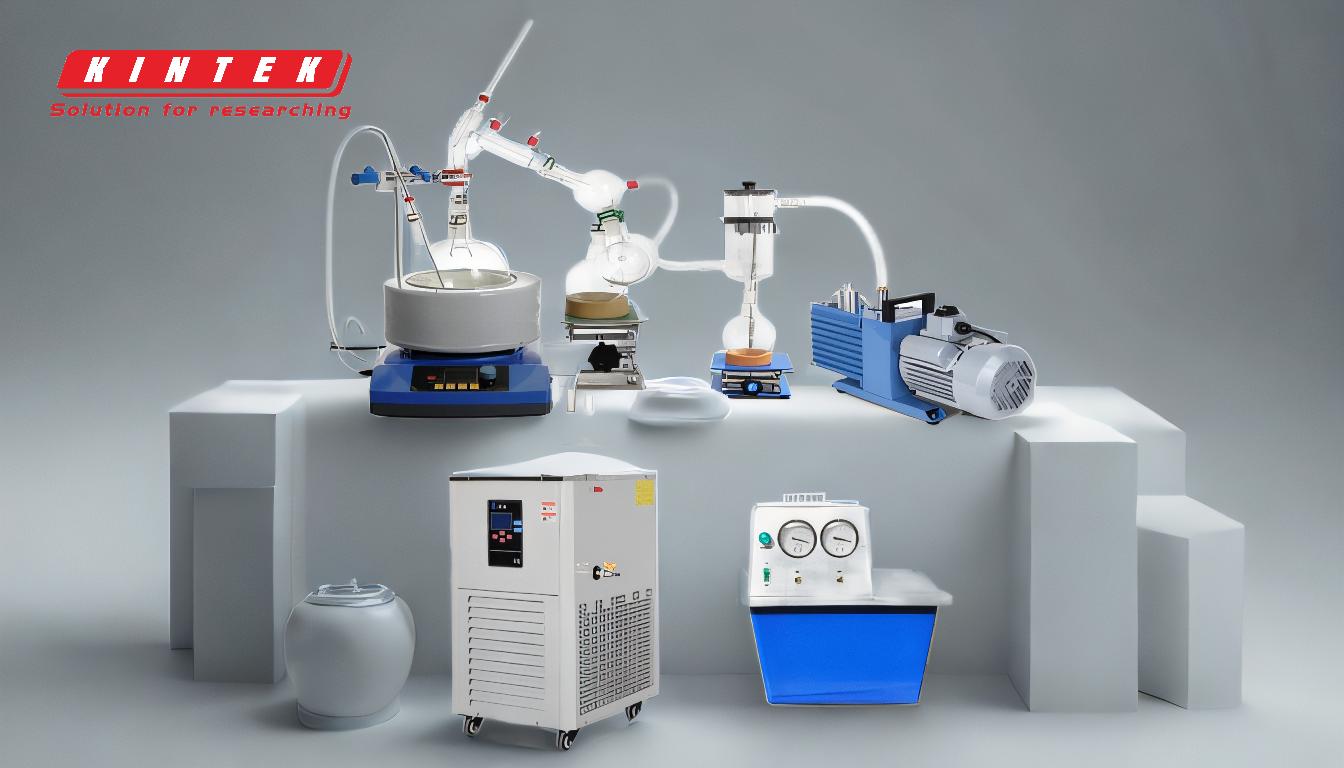Molecular distillation of oils is a specialized vacuum distillation process used to purify and separate oils by leveraging differences in the evaporation rates of their components under high vacuum conditions. This technique operates at extremely low pressures (≈ 0.01 torr), where the mean free path of molecules is greater than the distance between the evaporation and condensation surfaces. This ensures that molecules travel without significant collisions, allowing for efficient separation based on their individual properties. Molecular distillation is widely used in industries for deodorization, decolorization, and the removal of undesired compounds like cholesterol from oils. It is particularly effective for processing thermally sensitive materials and complex molecules, making it a preferred method for high-purity oil production.
Key Points Explained:

-
Definition and Principle of Molecular Distillation:
- Molecular distillation is a vacuum distillation process that operates under extremely low pressures (≈ 0.01 torr or 1.3 Pa).
- The key principle involves creating conditions where the mean free path of molecules is greater than the distance between the evaporation and condensation surfaces.
- This minimizes intermolecular collisions, allowing for efficient separation of components based on their individual evaporation rates.
-
High Vacuum and Free Molecular Flow:
- The process requires a high vacuum to increase the mean free path of molecules, ensuring they travel without colliding.
- At pressures below 0.01 torr, fluids enter the free molecular flow regime, where the mean free path is comparable to the size of the equipment.
- This regime is critical for the effective separation of components in the mixture.
-
Applications in Oil Purification:
- Molecular distillation is widely used in the purification of oils, including processes like deodorization, decolorization, and the removal of impurities.
- It is particularly effective for removing undesired compounds such as cholesterol from oils like lard and butter.
- For example, under specific conditions (10^-4 torr pressure and 250°C), up to 90% of cholesterol can be removed within two hours.
-
Separation Based on Boiling Points:
- The process leverages differences in the boiling points of components to evaporate and collect them separately.
- This makes it suitable for separating thermally sensitive materials and complex molecules without causing thermal degradation.
-
Short-Path Distillation:
- Molecular distillation is also referred to as short-path distillation because the condensing surface is placed close to the heated evaporation surface.
- This setup ensures that molecules travel a short distance before condensing, which is crucial for processing high-molecular-weight compounds like cannabinoids.
-
Advantages of Molecular Distillation:
- High purity: The process allows for the separation of components with minimal contamination.
- Thermal sensitivity: It is ideal for processing materials that are sensitive to high temperatures.
- Efficiency: The high vacuum and short-path setup ensure rapid and effective separation.
-
Industrial Significance:
- Molecular distillation is a preferred method for the purification of natural products, complex molecules, and oils in industries such as pharmaceuticals, food, and cosmetics.
- Its ability to handle thermally sensitive materials makes it indispensable for producing high-quality oils and other products.
By understanding these key points, purchasers of equipment and consumables can appreciate the technical advantages and industrial applications of molecular distillation, ensuring they select the right technology for their specific needs.
Summary Table:
| Key Aspect | Details |
|---|---|
| Principle | Operates at ≈ 0.01 torr, minimizing intermolecular collisions for separation. |
| Applications | Deodorization, decolorization, and removal of impurities like cholesterol. |
| Advantages | High purity, thermal sensitivity, and rapid separation efficiency. |
| Industrial Use | Pharmaceuticals, food, and cosmetics for processing sensitive materials. |
Ready to enhance your oil purification process? Contact us today to learn more about molecular distillation solutions!









